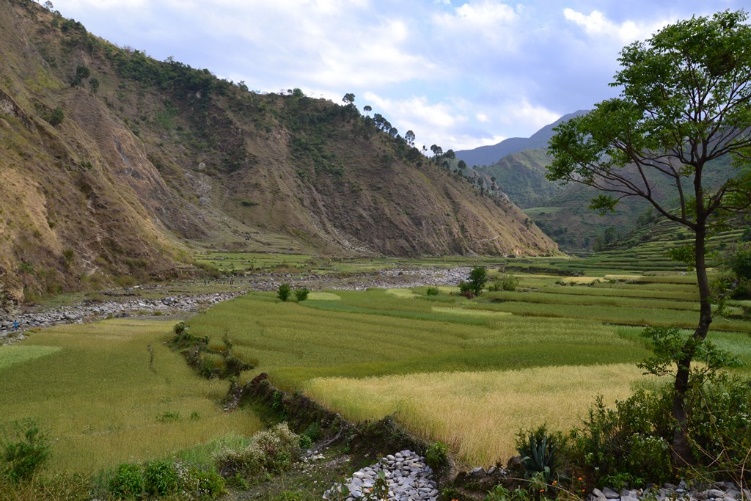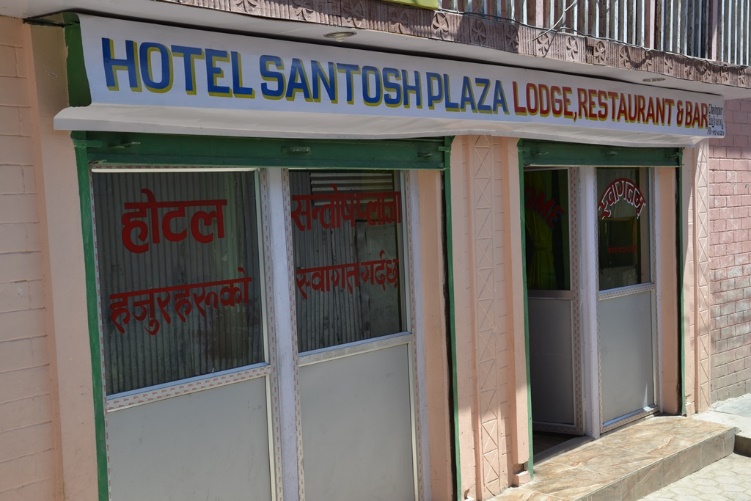Conservation and Development Initiative in Khaptad National Park
CONSERVATION AND DEVELOPMENT INITIATIVE IN KHAPTAD NATIONAL PARK
Project Status: 2013-16
GOALS AND OBJECTIVES
Khaptad National Park (KNP) is situated in the middle of four districts in the Far-western region of Nepal. Endowed with great natural beauty & vast wilderness, KNP is very rich in terms of biodiversity, with 567 flowering plants in the area, 23 mammals’ species, 287 species of birds and 23 species of amphibians. KNP is one of the most important tourism destinations in the region.
Mountain tourism in the Khaptad National Park presents the dilemma reconciling conservation with development. The limited number of tourist groups visiting annually is currently organized by external providers (mostly from Kathmandu), who do not use the local population services. Without local participation, mountain tourism in the region is likely to cause the exploitation of natural resources without supporting local economic development.
Non-profit organisation Tourism Development Society (T.D.S.) aims to protect natural and cultural heritage of the National Park by mobilizing local resources to provide requested services in acceptable quality. The goal of the project is to develop sustainable tourism in the Khaptad National Park for enhancing economic opportunities for local people and preserving environment and culture.
OBJECTIVES
- Increase income generation and uplift livelihood
- Enable locals to learn new skills
- Increase funds for protected areas and local communities through development of routes and their promotion
- Protect ecological processes and preserve biodiversity
- Introduce environmental education for visitors and locals.

HOW DOES IT CONTRIBUTE TO MOUNTAIN PROTECTION
As the communities are being involved in all the processes of planning, implementing and monitoring of the project activities, they are noticing the visible improvement in their livelihood as the outcomes. The local tour operators and guides who lead the groups in the Khaptad National Park follow the golden rule of “No Waste” and they ensure that visitors follow this rule as well. In the villages located in the buffer zone of the parks, visitors now can find basic hospitality services. T.D.S. works with home stay operators offering seminars to the different topics from how to start the businesses to how to protect their main assets – nature and culture.
COLLABORATION WITH LOCAL COMMUNITIES AND AUTHORITIES
Ensuing the better collaboration and generate the sustainable benefits to the locals T.D.S. takes the following measures:
- Mobilizing Community for the identification for the potential tourism Service Providers
- Conducting the survey for the need assessmen
- Facilitate to establish community based management committees
- Based on the findings facilitate to prepare the plan of action for the further intervention and technically support for the upgrading of the services in the villages
- Linking local service providers with buyer via meetings, seminars, marketing, explorations etc.
T.D.S. cooperates with Khaptad Area Tourism Development Committee (planning of interventions, support in implementation and all environmental activities) and with Nepal Tourism Board (promotion of the tourism products; support in implementation of marketing events and participation to tourism fairs).
Three new routes covering the Khaptad National were developed: Khaptad – Chainpur Trek, Far West Heritage Trail and Khaptad and Rara Trail. Through the exploration of the new routes and their promotion we wanted to enable the local tour operators in the Far Western Region to offer the new tourism products, but also to use the services of the local communities living around the Khaptad National Park; Through our new assessment trips we identified local traditional handicrafts which will be encouraged for local manufacture of goods and their selling to tourists; In the three districts around the Khaptad National Park three Tourism Action Groups were created.
GOING FURTHER THAN “BUSINESS AS USUSAL”
Example 1 : Conservation of Extinct Himalayan Herbs
With the Promotion of Sustainable tourism in Khaptad area we are aiming to reduce the over harvesting of the Himalayan Herbs, especially the Yarsa Gumba. In cooperation with ICIMOD we have already started initiative in Darchula District. As a result two of trekking routes to Mount Api Base Camp have been already explored. These routes will ultimately help to divert the local economy from the excessive Yarsa Gumba trade to the sustainable tourism.\
Example 2 –Developing of Environmental routes
The Mohana River Ecological Corridor is the habitat of more than 100 species of birds, five protected species of reptiles and amphibians, as well as 12 species of mammals. Along with government nature preservation organizations and local associations promoting ecological corridors and buffer zones, T.D.S. has started to develop and promote an environmental friendly tour package. The Bird Conservation Nepal (BCN), Mohana Community Forest Committee and local tourism businesses are involved stakeholders in implementing the following activities:
- research on available bird species
- capacity building measures for potential guides
- promotion of the developed tourist product. In the meanwhile, the bird watching site has become a highlight of a 1-day tour package offered by the local tour operators.

VOLUNTEERING OPPORTUNITIES
This year we have established cooperation with ASA-Programm: http://www.asa-programm.de/en/english/home/ In autumn 2016 we expect two volunteers joining our team in Dhangadhi. They will support our team and Tourism Action Groups in three districts around Khaptad National Park in introducing sustainable guidelines for the new entrant homestays in the region. TDS believes in international volunteerism for the local development which supports the knowledge exchange and partnership. So we always welcome volunteer workers in our areas. Supports to the volunteers can be provided directly from TDS and our regional TAG Networks in the districts.
Read the detailed description of the project.
CONTACT
Deepak Adhikari
tdsnepal@gmail.com
www.tdsnepal.org

